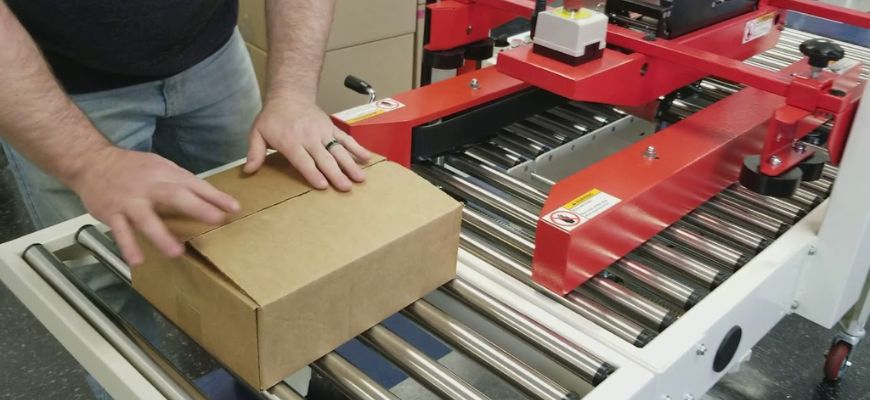
Creating your own Rocket Industrial personal account has many benefits:

Adding a case sealer to your packaging line is a big step towards a more efficient and cost-effective process. A case sealer will not only speed up your shipping operation but will also ensure your boxes are sealed properly and your products will be better protected. There is no "one size fits all" option, so it's important to properly assess your operation's needs before purchasing. Here are some important questions to ask yourself to get started on selecting the right case sealer for your needs.
With prices starting at just under $3,500, a case sealer provides excellent entry-level automation for your packaging line. Carton sealers can reduce tape material costs by 30%, tape up to 30 boxes per minute, provide more consistent taping, and improve employee safety as compared to hand taping. From semi-automatic uniform carton sealers to fully integrated automatic case sealers, we offer a wide variety of sealing solutions to fit your needs.
Watch our video below to see a comparison time-lapse of a worker hand sealing vs using a machine to seal 10 boxes.
Are All Of Your Boxes The Same Size?
The type of sealer you need will depend on the size of boxes going through your packaging line. If you are going to process large amounts of the same size box, then a standard uniform case sealer would be appropriate for you. If you are going to have various sizes of boxes pass through your packaging line, you'll want to have a random case sealer. Random case sealers have sensors that automatically adjust the tape head's settings for every case.
How Many Boxes Do You Seal And Ship?
Assessing how many boxes you currently seal a day and how much product you move will help you determine your case sealer requirements, the level of automation you need, and the belt configuration that is the best fit for you.
A semi-automatic case sealer is a great choice if you're sealing 50 - 250 boxes per day. An operator is needed to fold the flaps of the boxes and to feed the box into the case sealer, but it's a much faster process compared to hand-taping each box.
A fully automatic case sealer should be considered for higher production needs of over 250 boxes per day. No operator is required since the box is fed into the sealer by a conveyor and is automatically folded and sealed.
What Are The Dimensions And Weights Of Your Products?
It's critical to assess the variety of box dimensions you use. Dimension capacities vary by machine, so it's important to check the specifications to determine which case sealers can handle your minimum and maximum box sizes.
Case weight capacity is another factor to consider. Take into account the weight of your products and pay attention to the maximum weight capacity as this varies between machines.
The position of belt drives varies on case sealers. This is also something to consider based on your application.
Where Will The Case Sealer Be Used?
It's important to consider the environment the case sealer will be used. If the sealer will be used in a food production environment or an area with high humidity, a stainless steel box taper would be the preferred option.
Another good thing to look at when buying a case sealer is the physical size of the machine. Depending on how much space you have, you might need a machine with a smaller footprint to accommodate your floor space.
We can help you find the best case sealer for your application. Contact us for a recommendation and quote from a packaging equipment specialist or browse our online options. We also offer support after the sale with case sealer parts on hand and preventative maintenance plans to ensure your case sealer stays up and running.